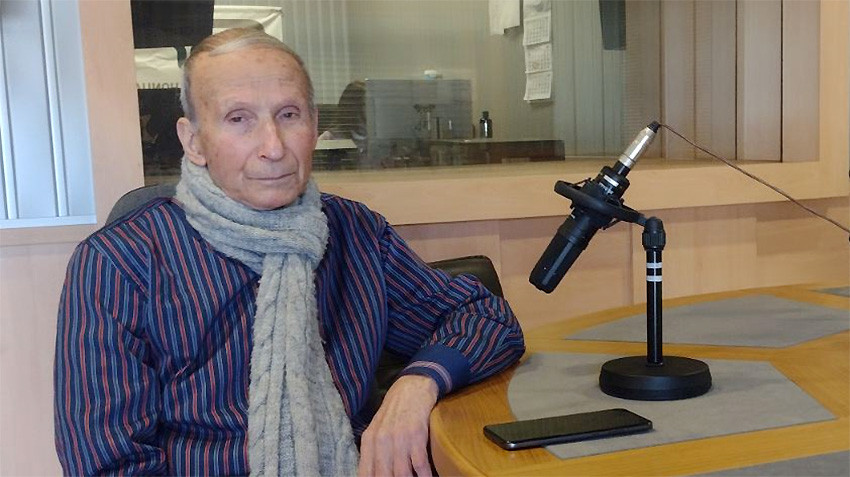The meeting between the Bulgarian and the Macedonian prime ministers in Skopje on 18 January began with a gesture on the part of North Macedonia, a gesture that had been delayed for two years. At the request of Bulgaria, North Macedonia submitted a written clarification to the UN, that the name of the country, negotiated in the Prespa Agreement between Greece and North Macedonia, lays no territorial claims to the Bulgarian portion of the geographic area Macedonia, which also lies to the North of the Greek border. The Prime Minister of North Macedonia Dimitar Kovacevski stressed:
“Bulgaria agreed to use the short name North Macedonia instead of the long – Republic of North Macedonia. It is explicitly confirmed that both names are valid in equal measure and do not concern the territorial integrity of Bulgaria”.
Bulgaria’s Prime Minister Kirl Petkov wants to see the friendship and good neighbourhood agreement signed in 2017, implemented in full. This will take place by setting up five working groups, on 25 January in Sofia, which are to assist and monitor the implementation of the projects set down up until 2029. These projects include building a rail link between Skopje and Sofia, something that has not been done over 140 years.
“The fact is that it is inconceivable that in the 21st century we do not have a railway between the two capitals. That should be taken as an example of maladministration of our two infrastructures, and that has to end,” Kiril Petkov emphasized.
“The step by the Bulgarian government will play a role that can, to a certain extent, be said to be educational – they will realize the kind of entity they are dealing with, and then the real pathways can be found. At the moment it seems to me that everything is in the domain of the romantic,” Ivan Nikolov, director and publisher of Bulgaria Macedonia magazine says, commenting on the visit by the Bulgarian government delegation to Skopje.

He believes there is evolution in the Macedonian media concerning bilateral relations – they have been interviewing different people who say things that used to be taboo. Is the interpretation of the implementation of the 2017 agreement the biggest problem at this point?
“In the discussion of the problems between Bulgaria and North Macedonia we have been straying from the initial root of the causes. You cannot solve any problem without knowing its genesis, how it has developed. It should be said that the biggest number of agreements were signed in the time of Premiers Ivan Kostov and Lyubcho Georgievski, more than 50 agreements in number. But at the end of the day the wall any Bulgarian desire to improve relations with the Republic of North Macedonia hits is a very thick one.”
After the meeting in Skopje, Premier Kiril Petkov announced that he would maintain personal contact with his Macedonian counterpart so as to overcome the problems connected with hate speech between the two countries.
“Hate speech comes from the politics imposed from Tito’s time, and even earlier. I believe it is very convenient to substitute the political problem for a historical problem. We are not denying their identity, which goes back to 1944, but how it was imposed – that is quite another matter. They are a political nation which emerged in certain ideological and geopolitical circumstances. But they want to transfer their identity onto people who are no longer among the living, people who have stated 100 times that they are Bulgarian – figures from the National Revival period, revolutionaries,” Nikolov says.
In a TV interview after the talks with the Bulgarian delegation, the President of North Macedonia Stevo Pendarovski described the Bulgarian Premier as one of the biggest optimists he has ever seen. Ivan Nikolov also sees the situation in a positive light. He believes that with the new bilateral working groups that are to be set up, the Bulgarian prime minister and his team will come to understand the substance of the problems between Sofia and Skopje, and “if then, they still have the same enthusiasm they will take a realistic view of what can be achieved.”
“All in all I believe that there will be an evolution there (in North Macedonia – editorial note) because new generations are coming. The people who wrote the thick books are passing from this world, one by one. There will be a process taking place, I think, in these new conditions. It will be a difficult, slow, harrowing process and we have to find the tools that will impact it.”
The deadline for the start of the implementation of the new European Media Freedom Act (FEMA) is fast approaching - August this year. "Some Member States are already quite far in implementing the European Media Freedom Act because some of..
It’s official—Bulgaria is now the 21st country in the eurozone. From 1 January 2026, the euro will become the legal tender, although levs will still be accepted for another month. Bulgaria becomes the 21st member of the Eurozone “I think..
"What we have let slip, we have let slip over the last 20 years, not yesterday or the day before." This was stated to the Bulgarian National Radio by Ivaylo Valchev, MEP from the European Conservatives and Reformists (ECR), before today's vote in..

+359 2 9336 661
